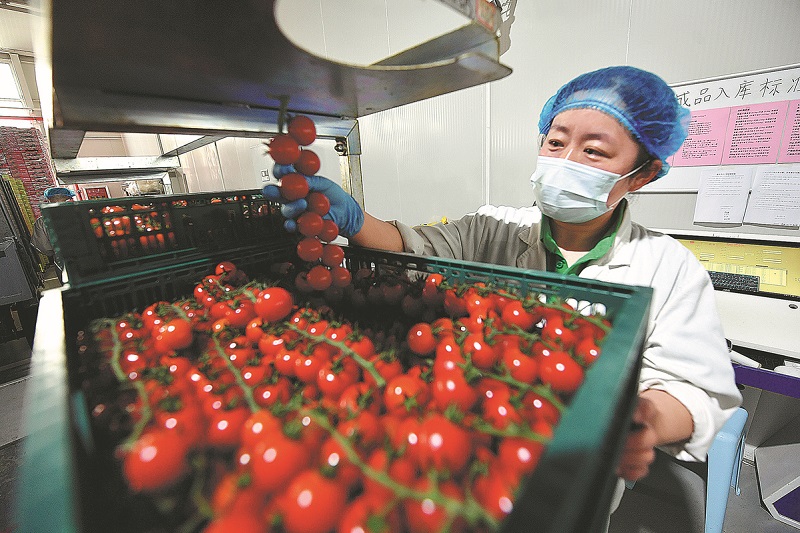China promotes legislation on agricultural R&D to ensure food security

A worker checks the quality of tomatoes at an agricultural industrial park in Rizhao, Shandong province on May 25. [Photo by Wang Haibin/For China Daily]
China's push to bolster germplasm exchanges is part of its shift to a more technology-driven approach to addressing food security problems at home and abroad.
Sharing starts with conservation. In 2015, the agriculture ministry launched a national census of crop germplasm as part of a broader effort to rescue vanishing crop species. It involved more than 30,000 grassroots officials who collected about 12,000 germplasm samples over the course of about three years. Without that effort, there was a risk the genetic material could have become extinct.
China has also ramped up the construction of facilities to store such assets. In May, it finished a national germplasm bank for wild rice species in Sanya, Hainan province, that its builder called "the world's largest repository for gene resources of wild rice varieties".
Experts said its location, in a free trade port, helps with the sharing and use of germplasm across borders.
Three months later, the Chinese Academy of Agricultural Sciences and authorities in Beijing and Hainan launched the genome-to-phenome program, an attempt to bolster the sharing of germplasm with global partners.
The project has won widespread recognition, with Govaerts calling China a flag-bearer on that front.
"China is really getting together all the international actors," he said.
Seed research is also central to growing food in once unimaginable places such as saline-alkali land, another part of China's quest for increased food security.
Central authorities called last year for scientists and technicians to screen and nurture crop seeds that can withstand saline-alkali stress. Better seed, coupled with soil improvement methods, fertilizers and irrigation, would make a difference, they said.
In recent years, the top legislature has formulated laws aimed at bolstering the country's seed research and development capabilities.
After three rounds of revisions since 2022, the National People's Congress Standing Committee passed the National Food Security Law late last month.



